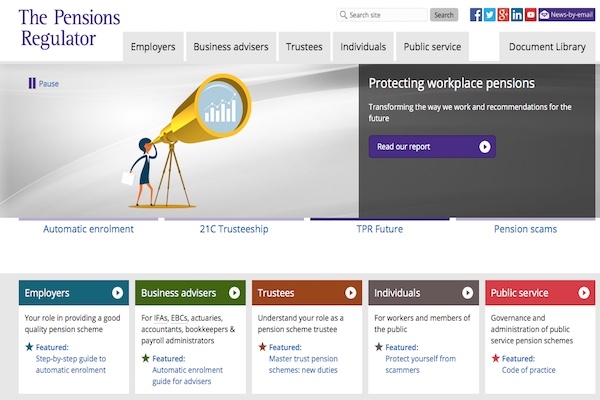Action by The Pensions Regulator resulted in an employer prioritising members of a DB scheme over profits.
TPR's latest Compliance and Enforcement Bulletin revealed information about cases and positive outcomes in the last quarter, both as a result of working with schemes to comply with the law and from using enforcement powers.
The anonymous case study showed how the DB scheme was now better funded after an upfront payment of £10m, a reduction in the recovery plan length from 13 to seven years, annual deficit recovery payments of £3.7m and a commitment to stop dividend payments for six years.
The regulator says the case was an example of how it was taking a tougher approach to scheme funding.
It came after TPR’s message in its recent Annual Funding Statement that schemes “should be treated fairly, funding targets should be strong, recovery plans should be as short as possible, and dividends should not be paid if an employer is unable to support its pension scheme”.
Nicola Parish, executive director of frontline regulation at TPR, said: “We have clearly set out our expectations for all workplace pension schemes and we will continue to intervene where we have concerns that a DB scheme is not being treated fairly by an employer.
“This is one of many examples of our work with trustees and employers to secure appropriate recovery plans and agree acceptable deficit recovery payments, better protecting the savers in those schemes.”
The Compliance and Enforcement Bulletin also set out major achievements by TPR between January and March including:
• The first fraud conviction
• The same case also resulted in the first conviction for making prohibited Employer Related Investments
• First custodial sentence resulting from TPR prosecution
• The first time TPR has appointed a trustee to a scheme primarily because of a lack of knowledge among existing board members
• First fine for failing to have three trustees on a master trust board
• Highest fine handed down by TPR to a trustee, totalling £103,750
In its work on auto-enrolment, TPR saw a 15% increase in the use of powers against employers compared to the previous quarter.
Darren Ryder, director of automatic enrolment at TPR, said: “It is vital that employers meet their automatic enrolment duties to ensure savers receive the income in retirement that they are entitled to.
“This becomes all the more important as minimum contribution levels rise and automatic enrolment matures, meaning people will be saving more towards their pensions.
“As our enforcement action shows, we will be tough on anyone who fails to meet their legal pension duties.”

